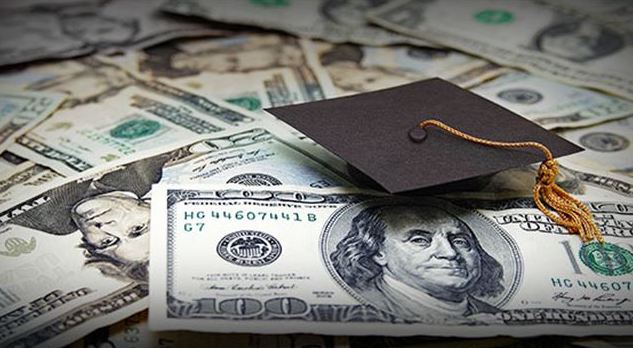Column: Hardworking students are true victims of admissions scandal
Photo Courtesy Creative Commons
The admissions scandal cheats hardworking students out of an equal opportunity to earn their place in elite universities.
March 21, 2019
When the list of people involved in the college admissions bribery scandal was released, the first thing I did was check to see if I knew someone on it. I attended an elite, private K-12 school in Washington, D.C., not because my parents paid for me to get there, but because I worked hard.
In fact, my entire family uprooted their lives to shorten my commute to my high school. We downsized our home because the cost of living in the city was more expensive. The rumors I heard of my peers’ parents paying to get them into elite schools like mine seemed ridiculous, but I had my suspicions.
And I’m not the only one. For decades, many have suspected that the wealthiest of our society pay their way into elite colleges. Now the truth is exposed. Yet, why is the evidence still so unnerving?
Perhaps because the college admissions scandal not only revealed the forms of bribery that are possible, but also that the rich will take extreme measures to guarantee their child’s acceptance.
These students did not prioritize their education or athletics. Whether they were aware of their parents’ bribery or not, they did know that they could rely on their parents’ wealth. Some argue that these students did not realize what was being done was wrong. Others even sympathize with them.
I simply cannot sympathize with a privileged student who knew their parents bought them into an elite university, and are now facing the public backlash of that revelation. The college admissions process is supposed to show how students prepared to take the next step into adulthood.
Therefore, even those students who did not know of their parents’ illegal activity to benefit them must be treated as adults. These students watched their peers struggle through the admissions process — whether trying to improve test scores and raise their GPAs or balancing sports and extracurriculars to be a well-rounded candidate.
Should these privileged students be expelled from school? Absolutely. They did not earn their place at these institutions and should pay the consequences of cheating the system.
“And the real victims in this case are the hardworking students,” U.S. Attorney Andrew Lelling said in a press conference last week, “who did everything they could to set themselves up for success in the college admissions process but ended up being shut out because far less qualified students and their families simply bought their way in.”
As for the people within these institutions that helped and allowed this to happen, they should be ashamed. Universities derive much of their prestige from hand-selecting students. This scandal diminishes their institution’s reputation as such.
In regards to falsified athletic profiles, such tactics equally harm actual student athletes. Some argue it is unfair that athletes are admitted to elite academic institutions for their athletic abilities. However, physical, musical and artistic talents are often overlooked in education despite the endless hours of the same dedication.
I competed on nationally ranked soccer teams throughout high school and played against girls who now play on the top-ranked soccer team in the United States. Although I chose not to pursue that path, I hold great respect for those who do. It is insulting to think that wealthy students bypassed all the hard work and dedication it takes to be considered a top athlete.
As a student and athlete, this scandal is a great insult to those who sacrificed so much. For those students in the midst of applying to colleges, these revelations complicate the process even more. How are incoming students supposed to take comfort in the process knowing it can be cheated? From a well-deserving applicant’s perspective, it can feel as though nothing can be done for an equal chance to get into elite universities.
When I saw Northeastern on the list of those involved with the scandal, it was disheartening. The thought that someone sitting next to me in class is only here because their parents bribed their way in is frustrating. But to find out that a former member of a Northeastern oversight group — a NU alum — would financially influence a student’s admission in exchange for services for his kids? That is just infuriating.
Despite my reaction of disappointment and anger, this investigation gives me hope that those responsible will be held accountable for their illegal actions.
It was out of envy that I occasionally asked myself, “How did my peers get into that school?” or “How is that girl I scored a goal on playing for that Division I school?” But after this scandal, I think more of us should be asking the same questions.







